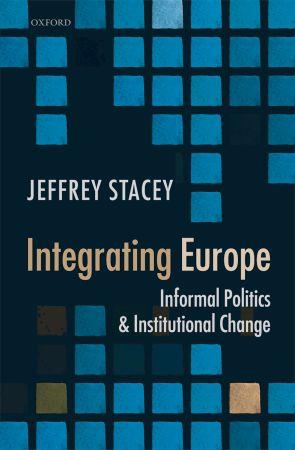Integrating Europe - Informal Politics & Institutional Change
Jeffrey STACEY
Availability: In stock
- Categories: EU Institutions, Gouvernance
- Publisher: OUP - Oxford University Press
- ISBN: 9780199584765
- Publication Date: 15/04/2010
- Binding: Hardback
- Number of pages: 288
Summary
* Engaging new explanation of institutional change in the EU
In Integrating Europe: Informal Politics and Institutional Change the author explains why the European Union (EU) member states actively surrender policy-making power to supranational authorities in unconventional ways. In light of the general antipathy toward giving up national sovereignty in European societies--even where "pro-European" sentiment thrives, why do national governments allow the creation of any new EU laws or policies whose effects they cannot keep under their general control? Why do EU member states allow any sovereignty transfer to occur outside of inter-governmental treaties, which are the only legitimate EU bargains found in the EU's formal sphere? Deploying the tools of rational choice institutionalist theory, the author argues that informal bargains struck between the EU's primary organizational actors - the European Council, European Commission, and European Parliament - have paradoxically resulted in increased integration. As the EU is an ideal laboratory for testing different institutionalist hypotheses for explaining institutional change, the author focuses on the ongoing competition to alter the EU rules that allocate power, and, with an approach that allows for feedback loops among agents and structures, makes an argument that flies in the face of realist and intergovernmentalist theories. While some have shed light on the importance of informal dynamics in the legal sphere of the EU, this book does the same for the policy-making sphere.
Readership:
Scholars and students of political science, international relations, EU studies, and political institutions.Table of contents
1: Introduction
2: A Theory of Informal Politics
3: Describing Informal Accords
4: Explaining Informal Accords
5: Informal Accords and Non Accords
6: Informal Accords and Budgetary Politics
7: Informal Accords and Legislative Politics
